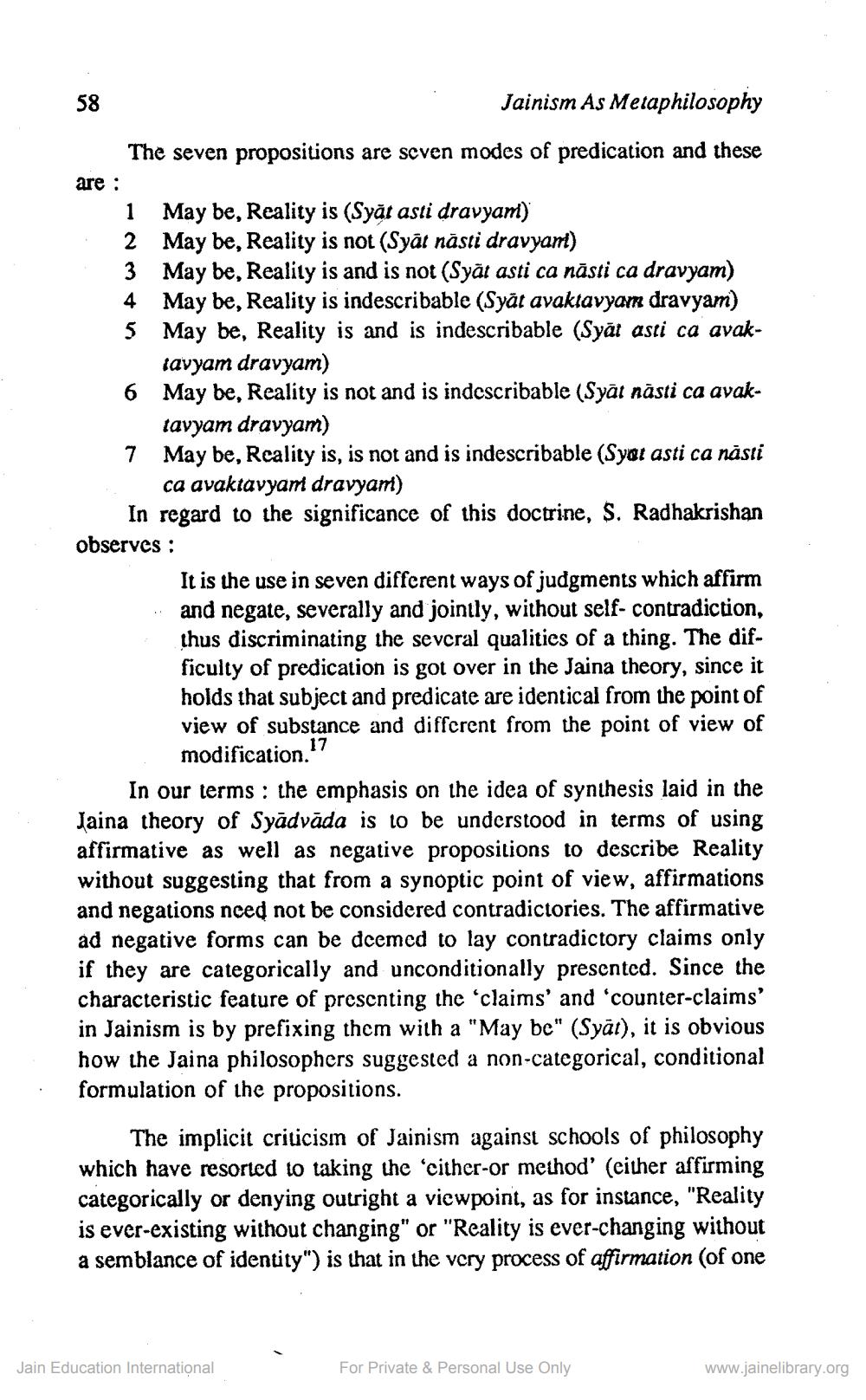________________
Jainism As Metaphilosophy The seven propositions are seven modes of predication and these are :
1 May be, Reality is (Syāt asti dravyam) 2 May be, Reality is not (Syāt nāsti dravyam) 3 May be, Reality is and is not (Syāt asti ca năsti ca dravyam) 4 May be, Reality is indescribable (Syāt avaktavyam dravyam) 5 May be, Reality is and is indescribable (Syai asti ca avak
lavyam dravyam) 6 May be, Reality is not and is indescribable (Syāt nāsti ca avak
tavyam dravyam) 7 May be, Reality is, is not and is indescribable (Syot asti ca nästi
ca avaktavyam dravyam)
In regard to the significance of this doctrine, S. Radhakrishan observes :
It is the use in seven different ways of judgments which affirm and negate, severally and jointly, without self-contradiction, thus discriminating the several qualities of a thing. The difficulty of predication is got over in the Jaina theory, since it holds that subject and predicate are identical from the point of view of substance and different from the point of view of
modification." In our terms: the emphasis on the idea of synthesis laid in the Jaina theory of Syādvāda is to be understood in terms of using affirmative as well as negative propositions to describe Reality without suggesting that from a synoptic point of view, affirmations and negations need not be considered contradictories. The affirmative ad negative forms can be deemed to lay contradictory claims only if they are categorically and unconditionally presented. Since the characteristic feature of presenting the 'claims' and 'counter-claims' in Jainism is by prefixing them with a "May bc" (Syāt), it is obvious how the Jaina philosophers suggested a non-categorical, conditional formulation of the propositions.
The implicit criticism of Jainism against schools of philosophy which have resorted to taking the 'cither-or method' (either affirming categorically or denying outright a vicwpoint, as for instance, "Reality is ever-existing without changing" or "Reality is ever-changing without a semblance of identity") is that in the very process of affirmation (of one
Jain Education International
For Private & Personal Use Only
www.jainelibrary.org




